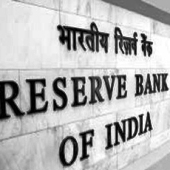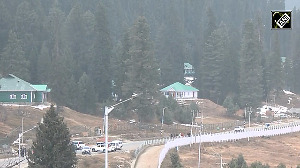 Ahead of the Reserve Bank of India's credit policy review later this week, economists today said the central bank may suck out excess liquidity from the system by asking banks to keep more cash with it to tame the surging inflation.
Ahead of the Reserve Bank of India's credit policy review later this week, economists today said the central bank may suck out excess liquidity from the system by asking banks to keep more cash with it to tame the surging inflation.
The economists, polled by industry body Federation of Indian Chambers of Commerce and Industry, said the RBI may raise the cash reserve ratio, which is a portion of deposits that banks keep in cash with the central bank, by 50 basis points to 5.5 per cent, although this would have no impact on containing inflation.
A hike in CRR at this point in time may tone down the inflationary expectations that are building in the economy, but would fail to arrest inflation as it is not a monetary phenomenon currently.
"RBI may still want to indicate its seriousness about this issue (inflation) through a symbolic move in the forthcoming monetary policy," they said.
Wholesale price-based inflation shot up to more than a year's high of 7.31 per cent in December.
On food inflation, the economists said the larger issue is high growth and rising incomes in rural areas courtesy the NREGA leading to more demand for food items, while supplies languish.
Food inflation was 16.81 per cent in the week ended January 9 and was too high for the comfort of the government that announced several measures to augment supply of essential commodities.
The Reserve Bank of India will come out with its monetary review on Friday.
The Ficci survey notes that the economists reported that the RBI should desist from raising the key short-term policy rates -- repo and the reverse repo -- at this point in time. "A hike in rates could lead banks to raise their PLRs, thereby reducing credit offtake while also increasing the possibility of delinquent assets," it said.
On credit growth, the economists feel that companies are using non-banking sources for raising funds.
Credit growth picks up with a lag following recovery. Any interest rate hike by banks now would impact growth and corporate profitability, Ficci said.





